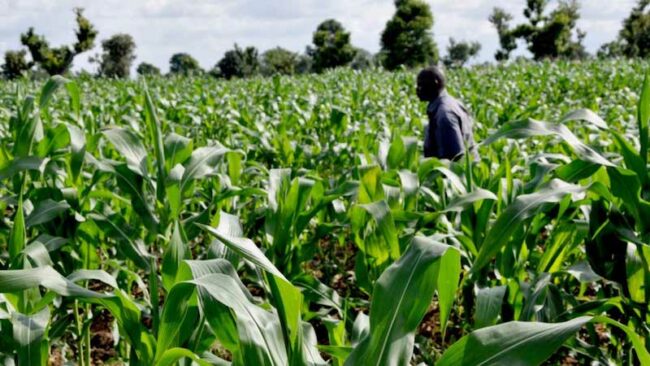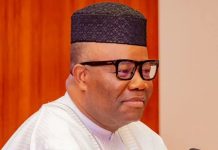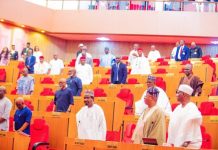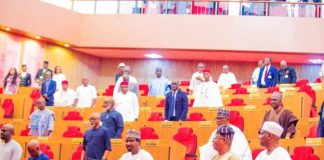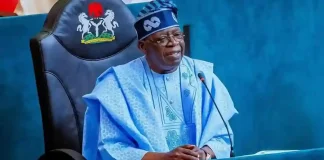🌿 Ruzu Non-Alcoholic Herbal Bitters
Ruzu Non-Alcoholic Herbal Bitters is a natural health supplement specially formulated to:
- ✅ Promote general wellness
- ✅ Detoxify the body
- ✅ Support the treatment of various ailments
Made from a powerful blend of 100% organic and medicinal herbs, Ruzu is completely alcohol-free, making it ideal for:
- 👪 All age groups
- 🌱 Health-conscious individuals
- 🌿 Anyone seeking non-alcoholic herbal remedies
Whether you're looking to boost your vitality, cleanse your system, or support healing the natural way, Ruzu Bitters offers a trusted herbal solution.
As part of efforts to ensure food security in Ondo State, the Ondo State government has trained over 40 Extension Agents and Livestock Community Service Providers on Good Animal Husbandry Practices (GAHP).
Speaking during the capacity training, which was facilitated by the State Livestock Productivity and Resilience Support (L-PRES) Project, the State L-PRES Project Coordinator, Mr. Olufemi Adeogun, said the training was a vital aspect of the project’s implementation and aimed at enhancing livestock resilience and commercialisation in the state.
Adeogun said the training would help to equip extension agents and community livestock service providers with modern knowledge and techniques essential to improving livestock rearing practices.
He urged the trainees to apply and disseminate the knowledge acquired during the training to livestock farmers, as their role involves directly educating and supporting farmers.
Adeogun, who expressed gratitude to the state governor, Lucky Aiyedatiwa, for embracing the L-PRES Project, said it would significantly enhance livestock production, resilience, and commercialisation in Ondo State.
He said: “This training is crucial for keeping up with emerging technologies in animal husbandry practices, which lead to better productivity.
ALSO READ:Bishop Kukah to FG: Tackle unemployment, religious extremism to curb insecurity
“Our goal is for those we have trained to go out and train farmers, thereby improving food security and ensuring the production of high-quality, protein-rich meat,” he said.
A Professor of Agricultural Extension from the Federal University of Technology, Akure (FUTA), Olaniyi Okunlola, while speaking on livestock extension methodologies, marketing strategies, and the economics of production, said the topics would help improve farmers’ production levels and benefit the entire livestock value chain.
Okunlola, who highlighted the importance of record-keeping and effective monitoring in livestock farming, said: “It is essential for trainees to understand various approaches to reaching everyone involved in the value chain.
“This training is designed to prepare them to operate farmers’ field schools and business schools, manage farm records, and access financial assistance for better marketing strategies,” he said.
He emphasised that livestock farming is not only about production but also about adopting sound business practices to achieve project objectives.
“The trainees are now equipped with increased knowledge and are expected to disseminate appropriate information to farmers and groups to improve livestock production and promote social inclusion,” he added.
Speaking on behalf of the participants, Prince Adelana Adesunloye commended the state government and the L-PRES Project for the training.
He said, “We are now equipped with the necessary knowledge about good animal husbandry practices, and we are ready to replicate what we have learned among farmers.”
Another participant, Mrs. Babatunde Bosede, said, “This training has expanded our knowledge, particularly on gender inclusion and effective animal handling.
“We are now better prepared to assist farmers and encourage their involvement in livestock production.”
She described the training as “an eye-opener” and a critical step in addressing challenges faced by farmers.
“This training has equipped us to play a pivotal role in achieving the objectives of the project by improving livestock production and enhancing food security in the state.”
The L-PRES Project is a six-year World Bank intervention, with Ondo State being one of the twenty implementing states in the federation.

